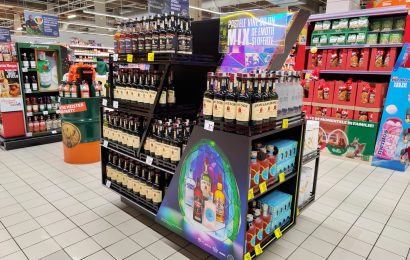European Commission launches “Science: it’s a girl thing!” campaign
European Commission launches “Science: it’s a girl thing!” campaign as women continue to be under-represented in research at a time when Europe needs more researchers to foster innovation and bolster its economy.
The goal of the campaign is to attract young women to research careers in order to increase the total number of researchers in Europe. There is a growing pool of female talent in Europe from which research and innovation should benefit. There are many factors at work explaining the lack of women in research in general and in some sectors in particular, with some linked to the practices of research institutions and others to persistent stereotypes which affect the culture and image of science. The campaign aims to address these stereotypes.
Young people typically make critical career decisions between the ages of 13 and 17, a period when they orientate towards or away from science and technology studies. Recent analysis of education data shows that at age 15, both girls and boys have roughly the same preference and ability in science and technology.
Since the 1990s the majority of university graduates have been women but the proportion of women in top positions in European science is still very low. In the EU, well over 50 % of all graduates are women in most areas of study, and significantly more in some (for example 78 % in education). They also make up the majority of masters students, and 45 % of Ph.D. graduates. In spite of that female graduates are severely under-represented in the areas of engineering, manufacturing and construction, with women making up just 25.5 % of graduates in these fields. Women are also under-represented in the areas of science, mathematics and computing, where they constitute 40.2 % of all graduates.
Furthermore, EU-wide, women make up only about 32% of career researchers. Most countries acknowledge that this is a problem, not only now but for the future of research. With businesses in many countries already reporting shortages of skilled workers, Europe cannot afford to waste any of its young talent.
Researchers are defined by the OECD as professionals engaged in the conception or creation of new knowledge, products, processes, methods and systems and also in the management of the projects concerned. There are roughly 1.5 million researchers (Full Time Equivalent, FTE) in the EU, of which 524,000 are in the business sector, but the number of researchers per country and sex of those researchers varies greatly. In Latvia more than 50% of researchers are women, while it is less than 30% in the Netherlands or Luxembourg.

Source: Eurostat Science, technology and innovation in Europe 2012
There are fewer female researchers in the business / private sector than in the public sector.

The campaign will be anchored by an informative and dynamic website and a Facebook page. On the website, there are video profiles of role models (female scientists) from each focus country, an interactive quiz revealing which science career best suits each girls’ interests, science facts and figures, descriptions of the many careers that can spring from studies in science and six global to show women why science needs them.
The campaign isn’t running only in Brussels and online. In the pilot phase, campaign will cover six countries. After Brussels, a “Science: It’s a Girl Thing!” mobile expo truck will cross Austria, Germany, Italy, Netherlands and Poland. It will visit Vienna, Krakow, Warsaw, Berlin, Amsterdam, Rotterdam, Munich, Milan and Rome between September – December 2012.
The truck will offer fun, on-the-spot scientific activities demonstrating the connection between science and music, cosmetics, food, fashion and more. For example, girls are invited to make their own lip balm or visit our oxygen bar to identify the smells of different food aromas such as mint, chocolate and strawberry.
In addition, “Science Café” will be organised for schools to meet inspirational role models: female researchers from the country, who will talk about their careers and the great opportunities for women. Participants also have the chance to take part in a flashmob-style “Chain Reaction Dance”, take the “Discover Your Inner Researcher” quiz on a tablet and pick up goodies and giveaways.
EU member states were informed about the campaign, in order to get involved. Around two thirds of EU countries already have gender equality policies in place in order to increase the number of women in engineering and science. The campaign does not replace national activities but intends to create synergy with national initiatives which promote gender equality. Member States share the same challenges relating to stereotypes on gender in science and learning from each other will help them progress towards the same goals.






